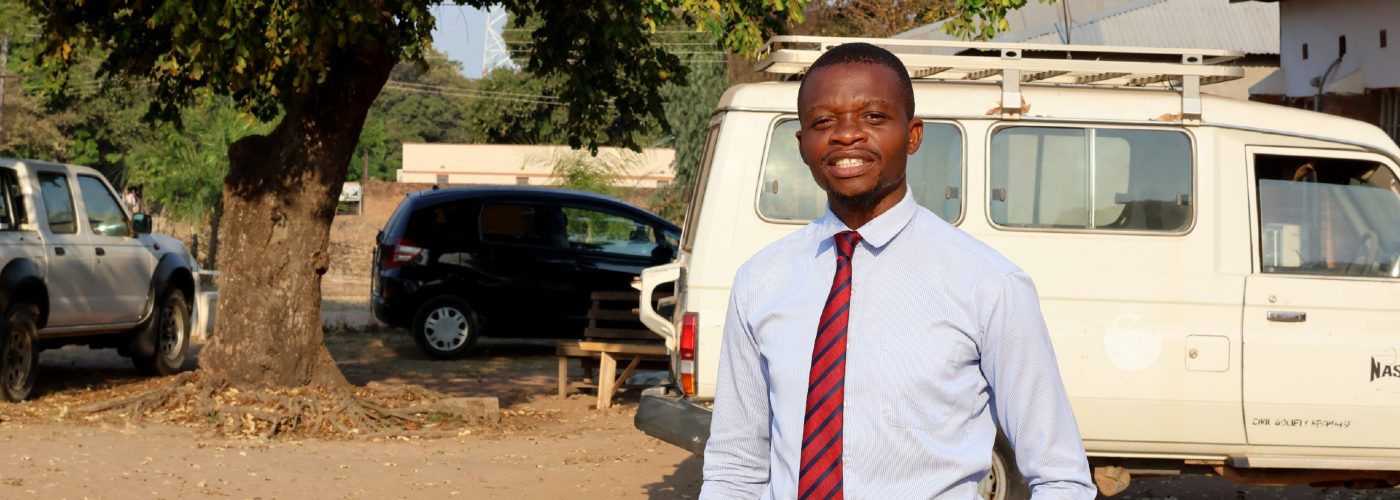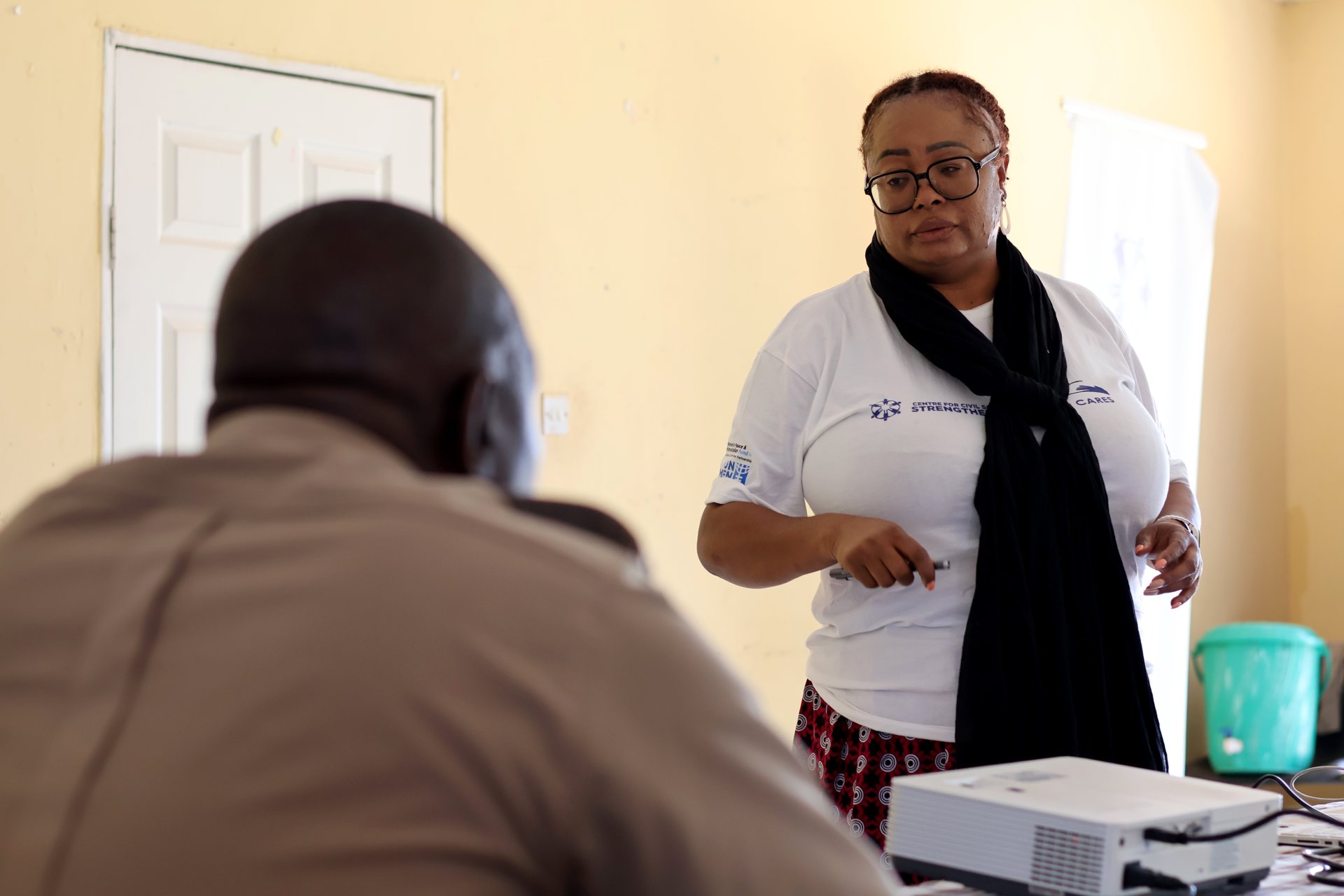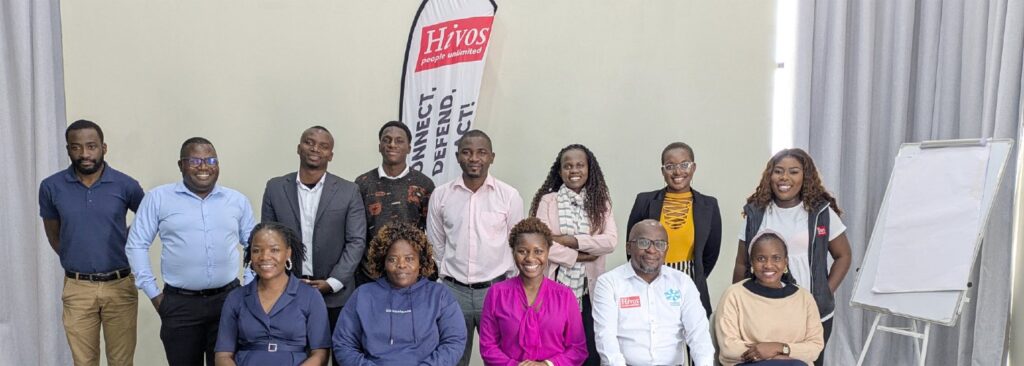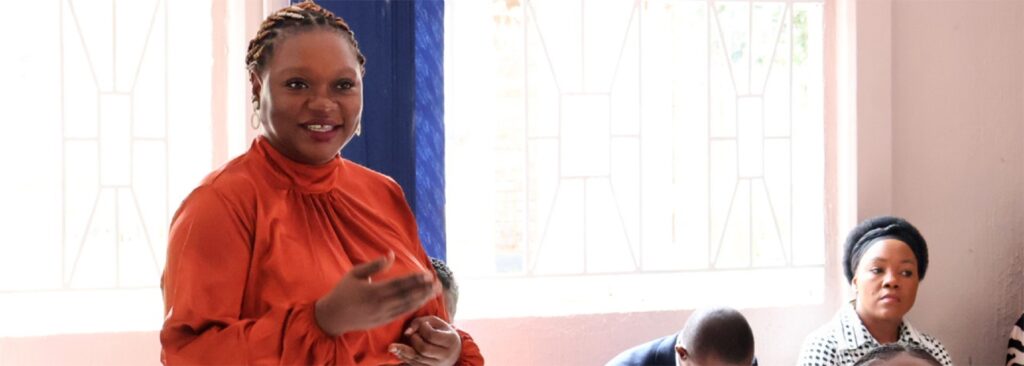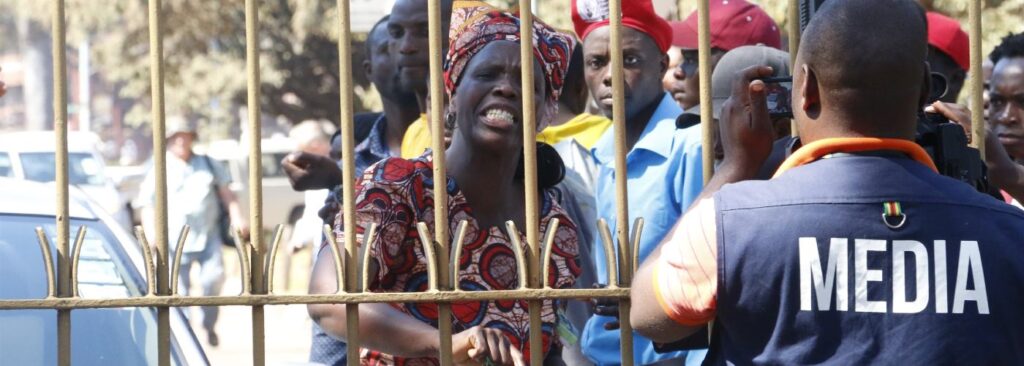In Nkhotakota, on the vast shores of Lake Malawi, court magistrate His Worship Dumisani Katundu stands at the center of a changing civic landscape. Once accustomed to institutions working in isolation, he is now part of a growing movement that believes a successful democracy depends on shared responsibility.
Across the districts of Nkhotakota and Mangochi, our Connect, Defend, Act! program and its local partner, the Centre for Civil Society Strengthening (CCSS), are bringing together civil society coalitions, local authorities, the media, and community networks to rebuild trust and reopen civic space.
Both districts share conditions that have created fertile ground for collective action. They have cohesive Muslim-majority populations, but their lakeshore economies are under environmental strain, women and youth are marginalized, and they have both experienced recent governance tensions.
So far, we have engaged with close to 70 civil society actors, including 25 women, all united by a renewed belief that communities must stand up and defend their rights themselves.
The power of collaboration
Hivos recently visited the districts to assess to what extent CCSS and its growing network of civil society actors are increasing democratic participation among the general public. What was clear from our conversations with a diverse set of actors is that people in the area are reclaiming their space.
For Magistrate Katundu, the CCSS-led workshops in Nkhotakota have become a turning point. “What stands out is their emphasis on mutual trust and open communication between institutions. Meaningful collaboration improves transparency, strengthens accountability, and ensures that policies respond to the needs of citizens,” he told us.
He outlined key challenges in his district including limited public awareness of rights, misuse of laws to restrict dissent, and weak protection for activists and journalists. But he also pointed the way forward: “The judiciary must uphold constitutional safeguards and set strong precedents for freedom of expression and association.”
This shift from isolated sources of authority to shared responsibility represents the heart of the civic space revival.
Expanding the circle
Similarly, the Nkhotakota District Council’s gender officer, Scholar Mwamlima, echoed the call for cooperation, stressing that civic space grows stronger when government and civil society actors work as a team.
“Collaboration is key,” she said. “Working with CSOs and government agencies such as courts, police, legal aid, and others has much more effect and increases women’s equal participation.”
She knows from her work that women cannot meaningfully participate in democracy if institutions do not intentionally make space for them.
Youth rising: a new defiant generation
Among the most energized civil society actors are the youth of the Malengachazi Youth Network. The CCSS workshops have given them a better understanding of political processes and more confidence ahead of the 2025 elections.
Malengachazi Youth Network representative Thokozani Fickson told us how one youth even submitted nomination papers to contest the elections for Ward Councilor. This bold step sparked widespread enthusiasm despite his eventual disqualification due to age and nomination fee requirements. “We used that setback as motivation. In 2030, we plan to support more young people to contest beyond Ward Councilor level,” he said.
“The workshops helped us understand how best we can participate and compete fairly. They helped us learn about the laws and policies that protect youth participation in politics and understand the stakeholders we need to engage,” Fickson added.
This story shows both the challenges and the long-term possibilities of youth participation in Malawi.
Media shifting narratives
Youth champion and Umunthu Radio journalist Ivy Mwanyongo credited the workshops with transforming her approach to reporting.
“Before, I focused mainly on official sources. After the training, I realized how important it is to bring in voices from rural communities,” she shared.
Her story on women’s political participation in Malawi’s 2025 elections, supported by CCSS and another radio partner (Nice Trust), reflects the richer, more grounded journalism now emerging in the district. By collaborating with civil society actors, her pool of resources and sources has multiplied, greatly enhancing the depth of her reporting.
Collaboration as the engine of democratic participation
For all the stakeholders we met — judiciary, police, youth leaders, gender activists, journalists, and religious leaders — the message that stood out was that defending civic space is not the sole responsibility of any one group. Collaboration, strengthened by trust, is the motor driving effective action. CCSS’s work in Nkhotakota and Mangochi shows that local communities can develop the knowledge and networks to hold power to account, challenge exclusion, and participate meaningfully in democracy.
Democracy does not end at the polls! It must be nurtured and defended through grassroots action, partnerships, and inclusive governance.

